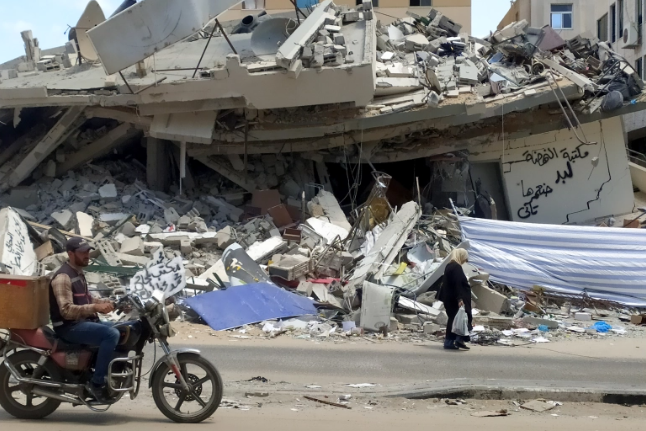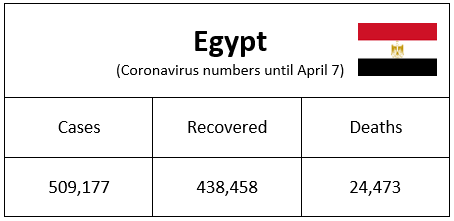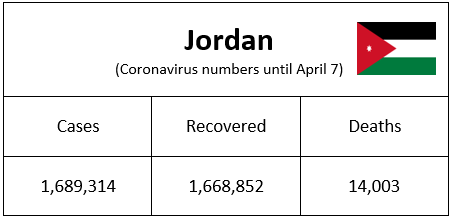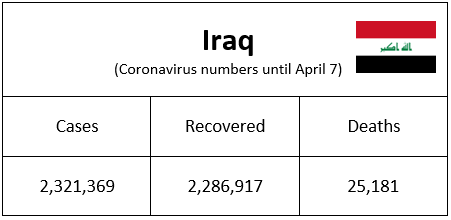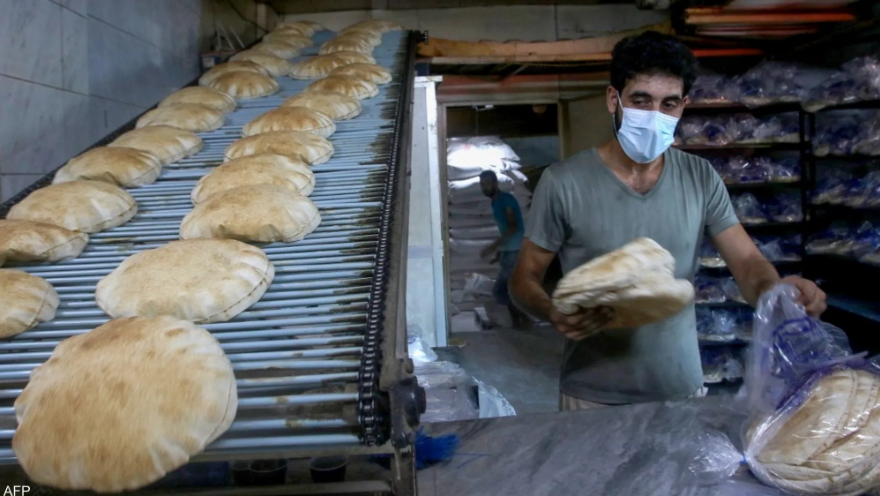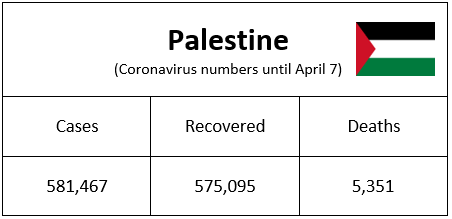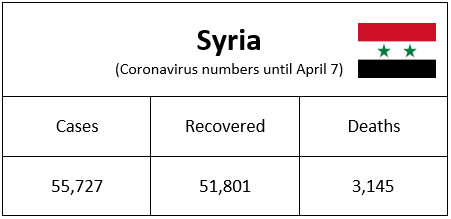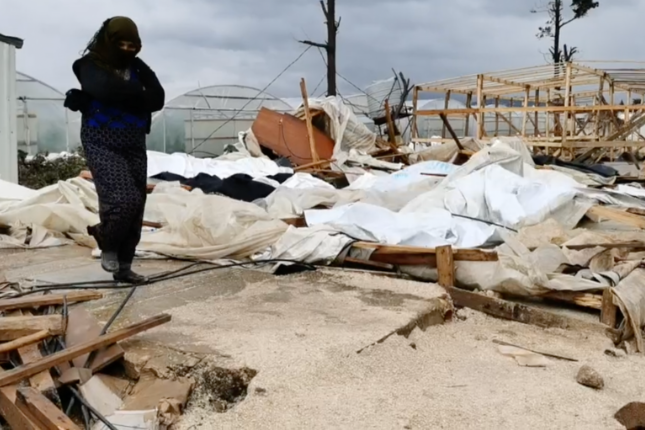The Middle East Bleeds Before an Unknown Future
March 2022: A Month of International Fluctuation and Development
Building and construction projects are facing the threat of a forced halt due to the significant increase in the prices of building materials. Photo: Al jazeera
As the drums of war sounded between Russia and Ukraine and Russian military operations escalated on the capital Kyiv, the world turned its attention to the difficult humanitarian reality in Eastern Europe. In its turn, the Middle East raised the alarm as the repercussions of this war affected most of the countries in the region, already suffering from years of wars, conflicts, and economic and social collapses.
The ongoing war in Ukraine has exacerbated the existing humanitarian issues, especially since global economy is interconnected. Remember when we had food security? Most of the countries in the region are struggling today to find solutions and alternatives to a new dilemma: food shortage, especially the wheat imported from Ukraine.
In light of all these events, March 2022 brought political, security, economic, and social developments and fluctuations that affected the entire Middle East. The economic and social situation has gotten even worse than it already was. This overview draws a picture of what Middle Easterns are going through.
Egypt Always Ready for New Challenges
With the beginning of the Russian military operations in Ukraine, many Ukrainian tourists were stranded in Egypt. This prompted the Egyptian authorities to implement a number of measures to take care of them, like extending their stay and paying the additional hotels costs. The official spokesman for the Egyptian Cabinet, Ambassador Nader Saad, announced that Egypt had paid the costs of flights organized with EgyptAir and Air Cairo to fly Ukrainian tourists to Ukraine-neighboring countries.
Egypt is witnessing a rise in the prices of basic materials. Photo: AFP - Source: Sky News Arabia
The war on Ukraine also had internal repercussions on Egypt, Egyptian Petroleum Minister Tarek El Molla confirmed that his country's economy would be negatively affected by the rise in oil prices. As a matter of fact, oil prices are changing daily, or rather every minute or two. El Molla pointed out that Egypt is an exporter of liquefied natural gas and can take advantage of the increase in natural gas prices to develop its exports, mitigating the negative impact of the increase in oil prices.
Since the beginning of March, Egypt has witnessed a rise in the prices of some food commodities as a result of the repercussions of the Ukrainian war. The Egyptian market also recorded an increase in the price of the ton of wheat by about one thousand Pounds, ranging between 6,000 and 6,500 Pounds.
Fearing a serious economic crisis, the Egyptian Ministry of Trade and Industry decided to ban the export of beans, gravel, mashed beans, lentils, wheat, and all kinds of flour, as well as all kinds of pasta for a period of 3 months since March 11. Egyptian President Abdel Fattah El-Sisi also granted an additional import incentive to the price of local wheat ardebs for the current agricultural season to encourage farmers to supply the largest possible quantity of it.
Financially, Egyptian Finance Minister Mohamed Maait stated that the new program with the International Monetary Fund does not include any additional burdens on citizens as the Egyptian government is working on plans to confront the worst scenarios that may occur according to the development of the crisis in Ukraine.
On the other hand, the Egyptian House of Representatives approved a draft law related to the comprehensive medical examination of spouses before their marriage with the aim of protecting the public health of society and limiting high divorce rates, to preserve the Egyptian family, its health, and development.
In an advanced step, Egypt implemented the first pilot project in the Middle East to incubate and treat people with Down syndrome and integrate them into society. The project bore the name of Noah's Ark "The Ark". It was chosen in the city of Tanta, with an artistic design that comforts children and resembles an ark.
Jordan Measures Take into Account the Developments
In the wake of the war between Russia and Ukraine, Jordan received at the beginning of March delegations of Jordanians residing in Ukraine who fled the battlefields through border crossings, heading home on an arduous journey, according to the Jordanian Foreign Ministry. Jordanian authorities also worked to evacuate their nationals who moved from Ukraine to Poland by Royal Jordanian Air Force planes after close coordination between the Ministry of Foreign Affairs and the relevant Jordanian authorities and institutions, the Jordanian Embassy in Berlin (accredited to Poland) and the ministry's delegates.
The Jordanian government lifted most of the imposed restrictions that aimed at facing the Corona pandemic. Photo: AFP - Source: Sky News Arabia
Prices of vegetable oils in Jordanian markets recorded an additional increase of about 70%, leading to an increase in stagnation in the markets, negatively affecting the consumers' budget. Not to mention the increase in the prices of some legumes.
Jordanian Prime Minister Bishr Al-Khasawneh also indicated that his government is interfering with the authority of the law to curb price hikes, confront monopoly, and work to secure goods at fair prices. Despite the rise in wheat prices globally, the Jordanian government announced that it would not raise the prices of bread, as the Jordanian Minister of Industry and Trade stated that the Kingdom has a sufficient reserve of wheat for several months.
In the health department, the Jordanian government lifted most of the restrictions imposed in the face of the Corona pandemic in late March, following a significant decrease in the number of infections and an improvement in the epidemiological situation. This decision came with the aim of achieving a balance between health requirements and economic and social needs, according to Al-Khasawneh. Now, the Jordanian government allows people to be in open spaces without having to wear masks. Restaurants, halls, and establishments are allowed once again to operate and receive visitors at full capacity. Indoor and outdoor gatherings and prayers in places of worship are once again taking place without being bound by health measures like distancing and wearing masks...
On a side note, elections were held in March for members of the municipal and local councils of Amman, during which voters chose members who could provide services to citizens.
Iraq Between Political Fluctuations and the Repercussions of the Ukrainian War
At the beginning of March, the Iraqis woke up to dangerous security news: a missile bombing by the Islamic Republic of Iran on the city of Erbil. The capital of the Kurdistan region of Iraq prompted the authorities to form two investigation committees, governmental and parliamentary, to investigate the bombing. As for the presidency, the political crisis in the country worsened after the failure of talks and the parliamentary blocs to elect a president.
The Iraqi security services followed up the wave of price hikes and hold manipulators. Photo: Al Jazeera
On the other hand, after the outbreak of the Russian-Ukrainian war, the spokesman for the Iraqi Foreign Ministry, Ahmed Al-Sahhaf, reported that there are 5,537 Iraqis residing in Ukraine, including 450 students in 37 universities. Some of them managed to return to their country after many difficulties, while others went to the European continent. The Iraqi Foreign Ministry had announced that it would issue passports to the Iraqis who lost them.
On a side note, observers warned that unemployment would push Iraqi youth to volunteer in the Ukrainian war, especially after Kyiv opened the door for foreigners to volunteer and participate. However, the official spokesman for the Iraqi Ministry of Foreign Affairs, Dr. Ahmed Al-Sahaf stressed that Iraq is a country with a government of sovereignty and law, and he refused to include Iraqi youth in foreign wars. He also pointed out that he took a balanced and moderate side of the issue of the Russian war in Ukraine, noting that Baghdad calls for dialogue to resolve the crisis between the two countries.
As for the economic repercussions of the Ukrainian war, the Iraqi market recorded an increase in food prices, as the price of a liter of oil increased to more than 4,000 Iraqi dinars, and the price of a 50-kilo bag of flour 50,000 Iraqi dinars, angering Iraqis.
After a directive from Iraqi Prime Minister Mustafa Al-Kazemi, the security services proceeded to follow up the wave of price hikes and hold manipulators and negligent accountable in local markets. The Iraqi government has approved a set of measures aiming to curb the economic crisis like subsidizing the salaries of retirees and employees with salaries of 500,000 dinars or less per month with 100,000 dinars for one month. It also zeroed customs taxes on basic goods such as food, building materials, and necessary consumables for two months...
On another note, the Second International Water Conference was organized in Baghdad under the slogan "Water and Climate Change", under the auspices of Iraqi Prime Minister Mustafa Al-Kazemi and with the participation of Arab and foreign countries. In a speech delivered on his behalf by Minister of Planning Khaled Al-Battal, Al-Kazemi indicated that "Iraq is the country most affected by climate change," noting that "improving the management and equitable sharing of water resources achieves the sustainable development goals." Therefore, "coordination between riparian countries must be emphasized to manage crises and soften the damage."
Lebanon is the Center of Social Tragedy
While Lebanon is preparing to contest the parliamentary elections next May amid the worsening judicial, economic, banking, and social crises... authorities worked in coordination with concerned parties to evacuate the Lebanese stranded in Ukraine through border crossings with private planes transporting them to safety. Noting that more than 4,000 Lebanese reside in Ukraine, including more than 1,000 students, according to the Head of the Lebanese Association of Parents of Students in Foreign Universities, Rabih Kanj.
The food security in Lebanon is negatively affected by the repercussions of the war in Ukraine. Photo: AFP - Source: Sky News Arabia
Concerning livelihood issues, the people’s fear of an unknown future is constantly increasing:
Houses began to turn off lights gradually due to the severe rationing following the decision of some owners of electricity generators to reduce hours of feeding due to an increase in diesel prices because of the ongoing war in Ukraine.
The prices of wheat, industrial raw materials, and food are also on the rise, especially since the Ukrainian war has negatively affected food security in Lebanon, as it imports about 80% of wheat from Ukraine. Officials warned that wheat stocks are running out and some bakeries have stopped working.
At the same time, Lebanon decided to ban the export of a long list of nationally manufactured food commodities to reduce the repercussions of the military operations in Ukraine. The Lebanese government is also seeking to confront the high prices and prevent monopoly through a committee of the ministers of industry, agriculture, finance, defense, and culture. Not to mention the rise in animal food prices, affecting the prices of meat, poultry, and dairy products.
On the educational level, the educational sector was not spared the repercussions of the economic crises. Parents are now unable to pay the exorbitant school fees, and schools, in turn, suffer from a dilemma in providing the basic requirements for education and securing teachers’ salaries. A bitter reality threatens the fate of schools as the "Louise Wegmann" private school closed its doors in Bchamoun, after years of raising generations who spread their wings in Lebanon and all over the world.
Lebanese banks carried out a two-day general strike in protest of the judicial measures targeting the banking sector by freezing the assets of seven banks and preventing six of their executives from traveling.
The Lebanese Minister of Culture Muhammad Al-Murtada delayed the government's decision to demolish wheat silos in the port of Beirut, almost entirely destroyed by the explosion of August 4, considering that what remained of these silos constitute a civilizational landmark for future generations. Al-Murtada issued a decree stating that silos should be included in the general inventory of historical buildings, and no demolition should be carried out without referring to the Minister of Culture.
Palestine Faces Threats to its Existence
Palestinians are still suffering from the violence the occupation had begun to wage in many areas, bringing the Palestinian issue back to the fore again. Prime Minister Muhammad Shtayyeh warned the State of Palestine of the dangerous repercussions of the escalation of murders and field executions in occupied territories, considering that occupation forces "benefit from the world's preoccupation with the war raging in Ukraine" to increase their military operations in Palestine. Shtayyeh's words came after the 16-year-old boy, Yamen Nafez Jafal, was shot dead by Israeli occupation forces in Jerusalem.
Photo from the "Cultivate Your Resilience" campaign - Source: Al Jazeera
The Palestinian leadership held a meeting headed by Palestinian President Mahmoud Abbas at the presidential headquarters in Ramallah to emphasize continuing the dialogue with civil society organizations and the Palestinian private sector, both considered primary parties in the “battle of liberation, construction, and independence.” The leadership also emphasized the role of Palestinian communities in the world and the importance of their unity under the banner of Palestine. It also called on all political forces and popular organizations to intensify their contacts with Arab and international parties and organizations and mobilize energies to support the Palestinian position.
Occupation forces continue to carry out a campaign of arrests targeting 16 Palestinian citizens from the West Bank, including nine from Hebron governorate. Israeli settlers stormed the courtyards of Al-Aqsa Mosque under the protection of occupation forces. The occupation army also stormed the Palestinian town of Yabad in the northern West Bank and raided the home of a Palestinian youth. Continuous shootings in eastern Tel Aviv resulted in the death of 5 Israelis and the injury of 6 others. Extremist settlers also stormed the Petra Hotel, owned by the Greek Orthodox Church, and confiscated part of it in the presence of the occupation police. Christian clergy, Palestinian dignitaries, and diplomats protested these acts of violence.
The Arab Society for the Protection of Nature in Jordan launched the “Cultivate Your Resilience” campaign in its fourth season in Jordan, in cooperation with the local “Hosna” radio, aiming to collect donations and provide them through agricultural projects, most notably land reclamation and planting fruitful trees for Palestinians in areas threatened by confiscation and settlement, the West Bank, and Gaza strip.
As for the repercussions resulting from the war in Ukraine, the Gazans are suffering from a surge in the prices of commodities and basic materials such as flour, rice, sugar and oil, under the brunt of the poorest families and vulnerable groups. In this context, building and construction projects also face the threat of a forced halt due to the significant increase in the prices of building materials, which negatively affects the reconstruction process of what was destroyed by the recent Israeli war in the Gaza Strip.
Syria faces Major Humanitarian Catastrophe
With the outbreak of the Russian-Ukrainian war, the stifling financial and living crises in Syria intensified amid warnings of a severe shortage of wheat and oil derivatives, and an increase in food prices.
However, the wheat and bread crisis in the country has worsened significantly, as their prices have risen twice in three days. On March 25, the Syrian market recorded the sale of a bundle of bread for 4,500 Syrian pounds in Damascus. Economists expected the prices of bread to double even more, especially since Damascus imports wheat and barley from Moscow, and now has to import its needs at international prices.
Millions of Syrians are facing desperate living circumstances. Photo: the island
The Syrian market suffers from a shortage of foodstuffs and a rise in their prices, with the absence of supervision and the greed of traders. In addition to the scarcity of gas and the emergence of congestion queues at the gas tractor sales centers, the prices of which also increased.
On the medical level, medicine prices in Syria have increased up to 30% to 40% for many types of medicine, as the phenomenon of selling medicine on the black market at double prices is active. Not to mention the depreciation of the pound’s exchange rate against foreign currencies, and the discontinuation of hundreds of pharmaceutical brands from pharmacies.
On the humanitarian level, the International Rescue Committee indicated in a statement that “the humanitarian needs of Syrians continue to reach record levels after 11 years of conflict, as conflicts and displacement have been exacerbated for more than a decade due to Corona virus and drought, in addition to the currently collapsing economy, making millions of vulnerable Syrians struggle to survive."
Adding: "Across the war-torn country, more than 60% of the Syrian population - 12 million people - is facing hunger and wondering how to provide food for their families... According to the United Nations Office for the Coordination of Humanitarian Affairs (OCHA), the average household expenditure in Syria now exceeds disposable income by up to 50%.” Hence, the International Rescue Committee called on the international community to provide adequate funding for the next two-year humanitarian response plan.
Syrian news agency SANA reported that 13 soldiers of the army were killed, and 18 others were wounded in a "terrorist attack" on their bus in Palmyra desert. The Syrian media, quoting a military source, also indicated that an Israeli attack targeted the vicinity of the Syrian capital, Damascus, killing civilians, and causing material damage.
Refugees in the Wounded East
The displaced in Syria are suffering from severe humanitarian conditions due to rain and snow. Photo: Al Jazeera
It is true that the world is preoccupied with the developments of Ukrainian asylum in many countries of the world as a result of the military operations taking place in Ukraine, but the Middle East is also suffering from a refugee crisis in its countries. International bodies and organizations are working today with all their energy to distribute aid fairly to host countries.
Egypt: Ongoing Efforts to Support Refugees
We start our tour with the situation of refugees in Egypt where the United Nations High Commissioner for Refugees and the Egyptian Ministry of Foreign Affairs organized a joint round table on March 13 and 14, 2022 to support the drafting of the asylum law in Egypt. Minister Plenipotentiary Mrs. Nevin El-Husseini, Deputy Assistant Minister of Foreign Affairs for Refugees, Migration and Combating Human Trafficking at the Egyptian Ministry of Foreign Affairs delivered an opening speech in which she stressed the role of Egypt in hosting refugees and providing services, especially in health and education, highlighting the importance of cooperation between UNHCR and the ministry.
The round table comes as a continuation of a series of joint capacity development activities that are implemented in joint cooperation between UNHCR and the Egyptian government.
The European Commission had earlier announced 5 million euros in Egypt to help the most vulnerable refugees and asylum seekers living in slums in the city. Hence, this funding will allow safe and sustainable access to education, protection services, and basic needs.
Jordan: refugees are in danger
In Jordan, new data issued by the United Nations High Commissioner for Refugees in a report published on March 30 drew attention to the remarkable resilience of the refugees despite the repercussions of the pandemic. However, the reality is most refugees are still threatened to fall in extreme poverty, as 64% of the refugees live on less than 3 Jordanian dinars per day. 90% of refugee families indicate that they have more than one way to face the tragic reality, like limiting food intake or purchasing household goods through deferred debt to survive.
UNHCR Jordan collaborated with the World Bank Group on poverty in the Middle East and North Africa (MENA) region to identify poverty for the first time among refugees in Jordan. Data indicate that three quarters of refugees are vulnerable to poverty without assistance, starting from the international poverty line of 5.5 dollars, equivalent to about 3 dinars per day.
It should be noted that 760,000 refugees are registered with the United Nations High Commissioner for Refugees in Jordan. Only 17% of them live in refugee camps, while most of them live in towns and cities throughout the Kingdom of Jordan.
Iraq: International efforts to help the refugees
In Iraq, the United Nations High Commissioner for Refugees, the World Food Programme, UNICEF, and the United Nations Population Fund renewed their full commitment to support refugees and their host communities in Iraq, urging the international community to take such a step. "By renewing our commitments, we pledge to continue supporting refugees in Iraq to lead them to a bright future and a dignified life by providing education, job opportunities, and medical care," they said. Noting that about a quarter of a million Syrian refugees and asylum seekers are still living in Iraq amid difficult living conditions since the outbreak of the humanitarian crisis in Syria.
60% of refugee families in Iraq reported that they have reduced the total amounts of food consumption, as they have become dependent on debt as well as on humanitarian cash assistance. Opportunities for primary health care, especially reproductive care for women and girls, decreased with the increased risk of food insecurity. Not to mention the risk of depriving children of good quality education.
On this note, Iraqi President Barham Salih and Prime Minister Mustafa Al-Kadhimi discussed with Luxembourg Foreign Minister Jean Asselborn ways to enhance cooperation between the two countries and the situation of Iraqi refugees in Europe in two separate meetings in the capital, Baghdad.
Lebanon: The situation of the refugees from bad to worse
In Lebanon, the United Nations High Commissioner for Refugees assists all Syrian refugees who want to register in Lebanon as a step to alleviate the challenges they face to access their rights and support them to obtain assistance.
The implementation of the “Livelihoods Support in Bekaa and North Lebanon” project targeting Syrian refugees started in cooperation between the Qatar Fund for Development and the International Organization for Migration for one year. The goal is to target 604 of the most vulnerable Lebanese and Syrians in northern Lebanon and central Bekaa. This project also aims to create income-generating opportunities, promote entrepreneurial livelihoods, and job opportunities for communities threatened by the lack of municipal services, especially those who live in troubled neighborhoods in the north, Akkar, and the Bekaa Valley.
The United Nations Special Coordinator in Lebanon Joanna Frontka visited the Burj al-Barajneh camp near the capital, Beirut, where she was briefed on the conditions of Palestinian refugees. "I listened to the difficulties they are facing, especially the increase in poverty and unemployment, access to basic commodities, the high cost of living, the damaged infrastructure in the camp, and the increasing desperation of young people," she said. Frontka also reiterated the need for additional international funding for the agency's 2022 emergency appeal to cover the $85 million in emergency humanitarian response in Lebanon.
Syria: displaced people living in Deteriorating conditions
The conditions of the displaced in Syria are not getting any better, as a human rights organization warned about the deterioration of the conditions of the displaced in the Rukban camp on the Syrian-Jordanian border "to an unprecedented degree." Therefore, the London-based Syrian Human Rights Committee indicated in a statement that "the camp's residents suffer from a lack of clean drinking water and medicine, and a scarcity of basic food amid a siege imposed on all sides." Displaced Syrians in Qastoun camp, in the mountainous Sarmada area in the northern countryside of Idlib, are also facing great challenges due to the snowstorm that struck the region, especially since displaced families cannot afford heating wood. Camp residents face harsh conditions with every depression, tents are flying and water seeps inside. With the drop in aid, the camp administrator pointed out that only 3 bags of charcoal arrived to the camp that shelters 350 families.
On the 11th remembering of the crisis outbreak in Syria, United Nations Secretary-General António Guterres said that millions of internally displaced people and refugees are struggling to survive in the most difficult conditions… the devastation that Syrians had suffered is so widespread and deadly that it had no precedent in modern history.
The number of Syrian refugees living in their homeland amounts to about 6.9 million, according to what the United Nations organizations estimated, compared to about 5.5 million refugees who fled to neighboring countries and Europe.
Cyprus: appeals aiming at supporting refugees
Cyprus is also suffering from the influx of refugees, as it asked the member states of the European Union to help it deal with the large number of refugees entering the island. Knowing that Cyprus receives the highest number of asylum applications per capita in the European Union, noting that most immigrants come from Turkey.
Cypriot President Nicos Anastasiades pledged to work on making the conditions at the "Pornara" reception center for refugees "more humane", after criticizing the difficult conditions of more than 350 minors there. "Difficulties are to be expected when 5% of the ethnically divided island population is asylum seekers," Anastasiades noted.
In his turn, Cypriot Interior Minister Nikos Norris said that 92 of the 356 children in Bornara had been transferred to hotels, as they are trying to find accommodation for 150 others. He stressed that the overcrowding rate in Purnara would decrease as migrants were transferred to a newly constructed reception center 50 kilometers south of the capital.
The Communication and Public Relations Department
Resources:
- Sky News Arabia
- Al Jazeera Net
- Al Aarabi Al Jadid
- Al Youm Al Sabe’
- RT Arabic
-Anadolu Agency
- United Nations
-UNHCR - The UN Refugee Agency
- UNICEF
- Info Migrants
- European Commission

